World
Out in the World: LGBTQ news from Europe and Asia
Poland’s elections took place on Sunday, UK seeks to limit asylum seekers

Ireland
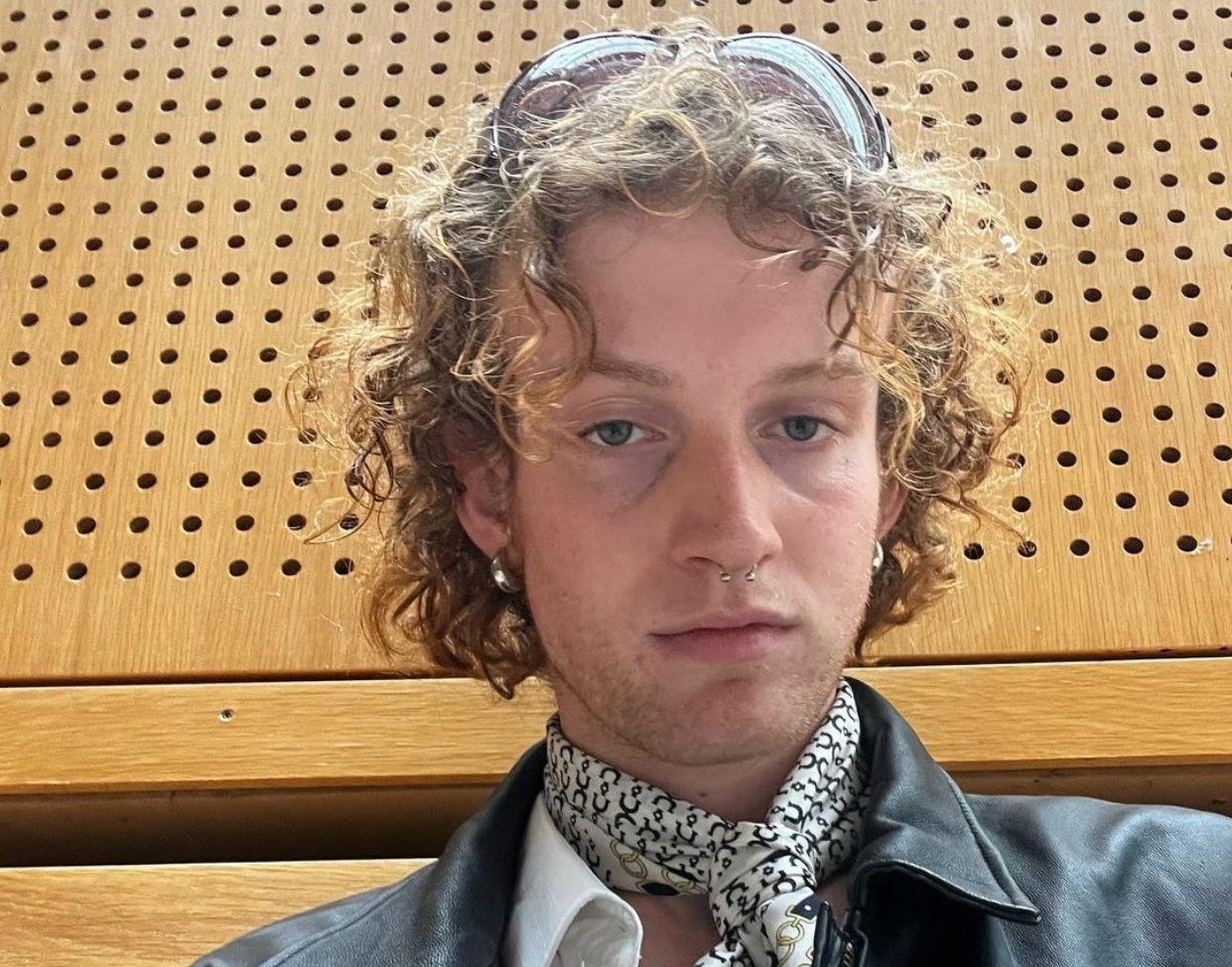
Ireland’s National Police Service is seeking information leading to the arrest of the unknown hit and run driver who struck and killed an openly queer 21-year-old University of Limerick journalism student on Oct 13.
Joe Drennan, a popular and respected student, was the editor-in-chief of Limerick Voice, the award-winning news platform and paper produced by journalism students at the University of Limerick. Drennan was also a contributing writer to Ireland’s LGBTQ media website and magazine GCN.
Dublin-based the Journal News reported that Drennan was standing waiting for a bus around 9.50 p.m., after he had finished a shift at a local restaurant at Dublin Road, Castletroy, Limerick, when a car that had, immediately beforehand, been involved in a collision with another car, as well as an alleged interaction with the police earlier on the night, struck and killed him.
The police said the driver of one of the cars “failed to remain at the scene” and that the driver of the second car, a male in his 40s and a female adult passenger, were taken to University Hospital Limerick for non life threatening injuries.
Drennan’s death has left his family, friends and fellow students and tutors at UL, shocked and distraught.
Paying tribute to Drennan on Sunday, Dr. Kathryn Hayes, course director of journalism and digital communication at the University of Limerick said: “We are absolutely devastated in the journalism department and in the wider UL community to learn of the tragic death of our student Joe Drennan. Our heartfelt sympathies are with Joe’s family at this terrible time and all of his classmates and many dear friends.”
Hayes said Drennan had been “an inspirational student and a hugely talented young journalist, who had a bright career ahead.”
Poland
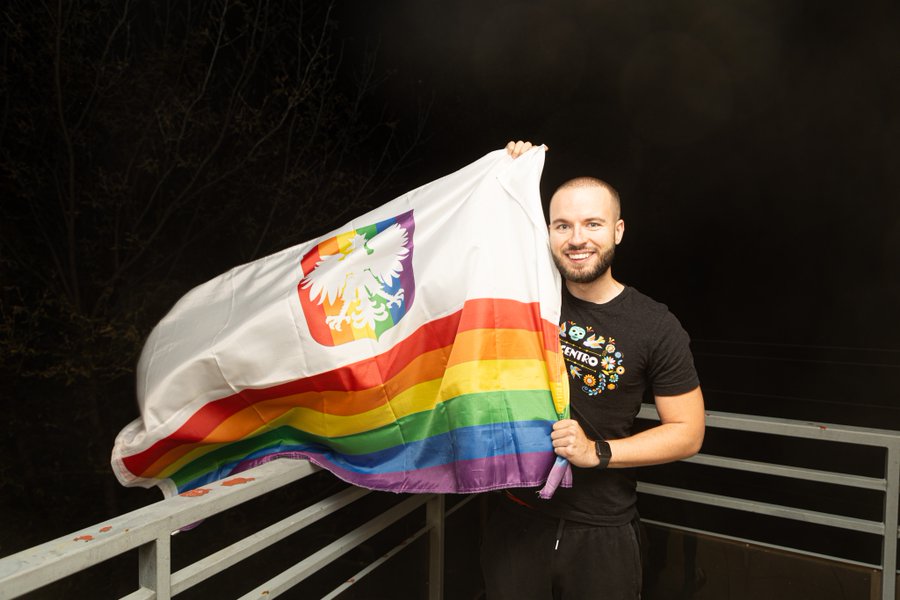
The country’s right-wing populist Law and Justice party, known as PiS, appears to have lost their parliamentary majority in the critical elections held Sunday. The final tally has yet to be announced.
This would end eight years of rule that has seen the Polish government repeatedly clash with the European Union over the rule of law, media freedom, migration and LGBTQ rights since Law and Justice (PiS) came to power in 2015.
Opposition parties led by 66-year-old Donald Tusk’s Civic Coalition have vowed to mend ties with Brussels and undo reforms critics say undermine democratic standards.
Tusk, a former European Council president, is aiming to the PiS rule under Deputy Prime Minister Jaroslaw Kaczynski.
“Poland won, democracy has won,” Tusk told a large crowd of jubilant supporters in what felt like a victory rally in Warsaw. “This is the end of the bad times, this is the end of the PiS government.”
Ipsos polling reported a larger proportion of 18-29 year-olds had turned out to vote than over-60s and election officials said that turnout was probably 72.9 percent, the highest since the fall of communism in 1989.
The BBC reported that President Andrzej Duda, an ally of the socially conservative PiS, would normally ask the biggest party to form a government. However with vote as close as it, if PiS fails to win a vote of confidence, then the Parliament would appoint a new prime minister who would then choose a government and also have to win a confidence vote in Parliament as well.
Leading Polish LGBTQ rights activist Bart Staszewski posted a statement on social media:
“I am gay, I am Polish and I am proud today. After eight years of hate against people like me, LGBT+ people, the creation of LGBT free zones, attacks on women and minorities, Poland is BACK on the path of democracy and the rule of law. This is also end of political trails of human rights activists. This is just the beginning of reclaiming of our country. The fight is ahead but we are breathing fresh air today. After eight years of government hatred, authoritarianism is over in Poland. I still can’t believe it … The nightmare ends …”
Switzerland
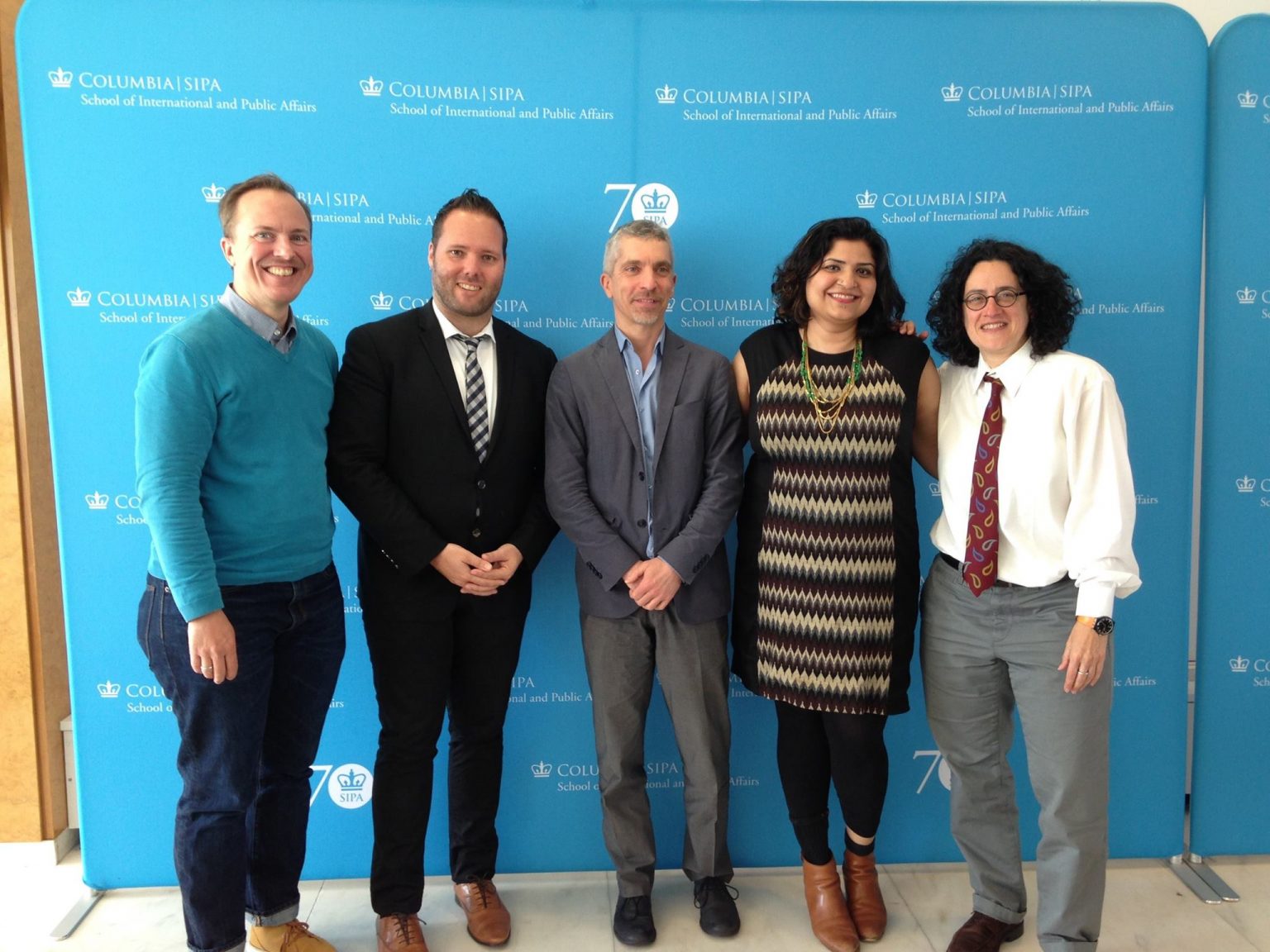
The U.N. Human Rights Council has named Graeme Reid, director of LGBT Rights for Human Rights Watch, as the next Independent Expert on Sexual Orientation and Gender Identity for the UN organization.
Originally from South Africa, Reid is the third person ever to be appointed to hold the #UnitedNations mandate dedicated to addressing specific human rights violations against #LGBT and gender diverse persons, following Vitit Muntarbhorn from Thailand (2016-2017) and Victor Madrigal-Borloz from Costa Rica (2017-2023).
Reid is an expert on LGBTQ rights. He has conducted research, taught and published extensively on gender, sexuality, LGBTQ issues and HIV/AIDS.
Before joining Human Rights Watch in 2011, Reid was the founding director of the Gay and Lesbian Archives of South Africa, a researcher at the Wits Institute for Social and Economic Research and a lecturer in LGBTQ studies at Yale University, where he continues to teach as a visiting lecturer.
An anthropologist by training, Reid received a master’s from the University of the Witwatersrand in Johannesburg and a PhD from the University of Amsterdam.
Turkey

Turkish President Recep Tayyip Erdoğan, speaking before the Congress gathering of his Islamist-rooted AK Party, which currently runs the nation’s government, said earlier this month that “he did not recognize LGBT and vowed to combat perverse trends he stated are aimed to destroy the institution of family.”
Erdoğan, who has held office since 2014, has a lengthy record of anti-LGBTQ statements who has frequently labeled members of the LGBTQ community as “deviants.” At the direction of his government, police agencies across the country have cracked down on Pride events and marches.
Last April, Erdoğan, who was campaigning for reelection, told a rally of supporters in the Aegean city of Izmir, “In this nation, the foundations of the family are stable. LGBT will not emerge in this country. Stand up straight, like a man: that is how our families are,” he added.
While being LGBTQ is not a crime in Turkey, hostility to it is widespread. Same-sex marriage, adoption, surrogacy and IVF are all illegal in the country, as is being openly gay or lesbian person serving in the military.
LGBTQ people are not protected against discrimination in employment, education, housing, healthcare, public accommodations or credit and police crackdowns often at the direction of the government have become tougher over the years.
France
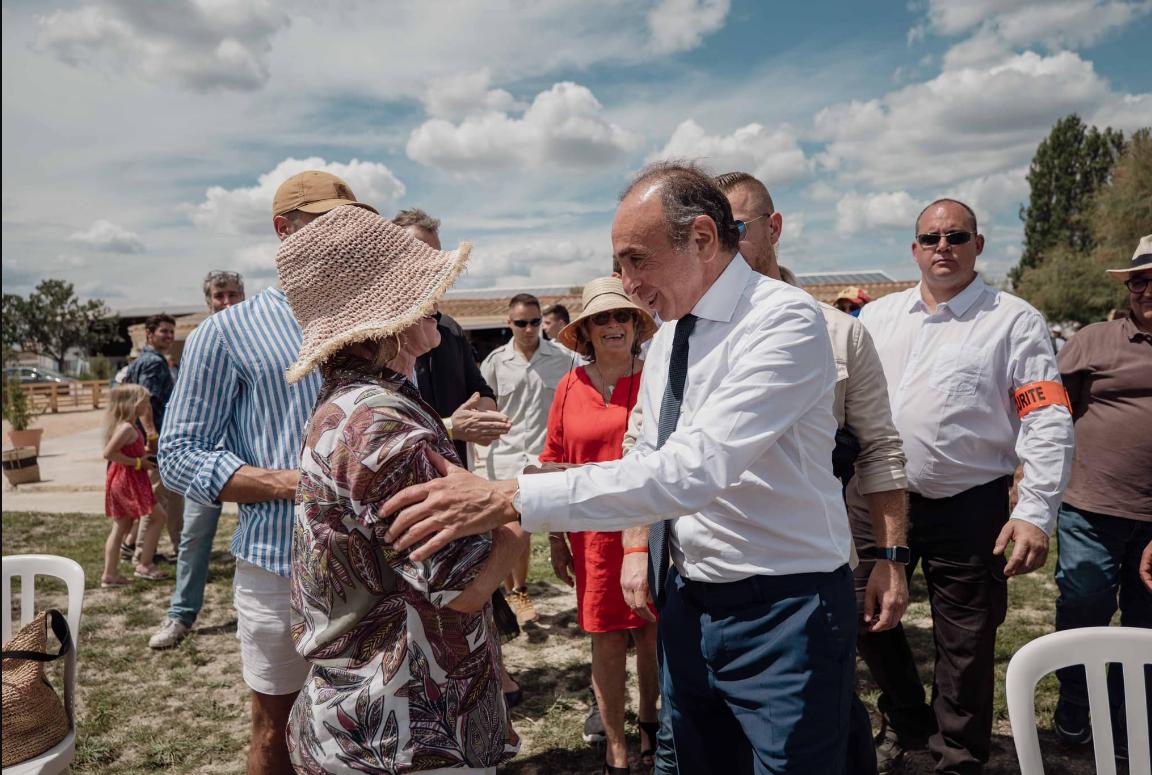
Eric Zemmour, the far-right political leader and former presidential candidate was convicted and fined for for homophobic statements he uttered while being interview on the French national news network CNews program Face à l’info hosted by Christine Kelly four years ago in October 2019.
French online news magazine Têtu.com reported that The Stop Homophobia association had filed a complaint against comments made by Zemmour on the Oct. 15, 2019, show. Speaking about LGBTQ rights during a long debate with Nicolas Bouzou, Zemmour declared: “We have the whims of a small minority which has control over the State and which enslaves it for its own benefit and which will first disintegrate the society, because we are going to have children without a father and I have just told you that it is a catastrophe and, secondly, who is going to make all the other French people pay for his whims.”
The judge of the Cour de Cassation, the highest court of criminal and civil appeal in France, with the power to quash the decisions of lower courts, ruled that Zemmour had acted with“ Behavior contrary to the general interest.” In his decision the judge noted:
“The comments are contemptuous of the people they target, who see their desire for a child reduced to a selfish ‘whim’ and even take on an outrageous dimension when it is attributed to them, to satisfy it, to have recourse to the subjugation of the state apparatus.”
“In this, homosexual people find themselves disqualified in the eyes of the public for who they are, their sexual orientation necessarily inducing, according to the defendant, behavior contrary to the general interest,” he added.
Zemmour was sentenced to a fine of 4,000 euros ($4,223.42).
United Kingdom
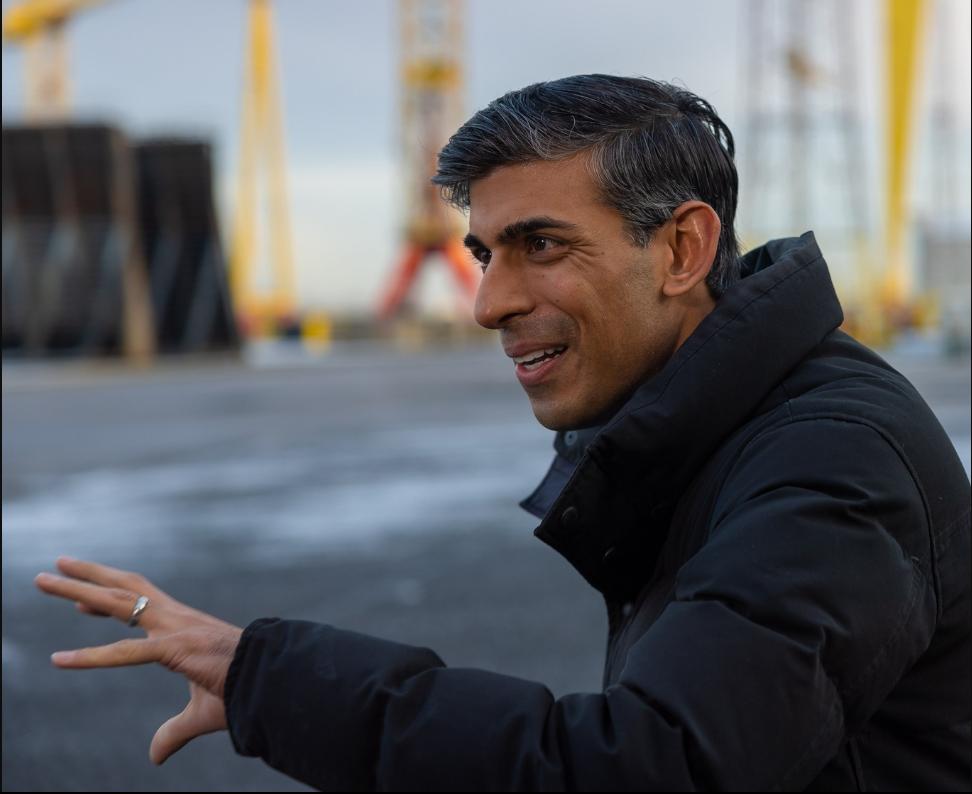
The government of Prime Minister Rishi Sunak is receiving copious amounts of criticism and outrage among the nation’s LGBTQ community and its allies for the anti-LGBTQ refugee asylum seekers and transphobic stance that has been taken by various government ministers including Sunak himself.
In a recent speech delivered last month on Sept. 26 at the American Enterprise Institute in D.C., Home Secretary Suella Braverman addressing the government’s policies towards immigration told the audience:
“I think most members of the public would recognize those fleeing a real risk of death, torture, oppression or violence as being in need of protection. However, as case law has developed, what we have seen in practice is an interpretive shift away from persecution in favor of something more akin to a definition of discrimination. And there has been a similar shift away from a well-founded fear towards a credible or plausible fear, the practical consequence of which has been to expand the number of those who may qualify for asylum, and to lower the threshold for doing so.
“Let me be clear, there are vast swaths of the world where it is extremely difficult to be gay, or to be a woman, where individuals are being persecuted, it is right that we offer sanctuary, but we will not be able to sustain an asylum system, if in effect, simply being gay, or a woman, or fearful of discrimination in your country of origin is sufficient to qualify for protection.
Article 31 of the refugee convention makes clear that it is intended to apply to individuals coming directly, directly from a territory where their life was threatened. It also states where people are crossing borders without permission, they should present themselves without delay to the authorities, and must show good cause for any illegal entry. The U.K., along with many others, including America, interpret this to mean that people should seek refuge and claim asylum in the first safe country that they reach. But NGOs and others, including the U.N. Refugee Agency, contest this. The status quo where people are able to travel through multiple safe countries and even reside in safe countries for years, while they pick and choose their preferred destination to claim asylum is absurd and unsustainable.
Nobody entering the U.K. by boat from France is fleeing imminent peril. None of them has good cause for illegal entry. The vast majority have passed through multiple other safe countries, and in some instances have resided in safe countries for several years. There was a strong argument that they should cease to be treated as refugees during their onward movement. There are also many whose journeys originate from countries that the public would consider to be manifestly safe like Turkey, or Albania or India. In these instances, most are simply economic migrants gaming the asylum system to their advantage.”
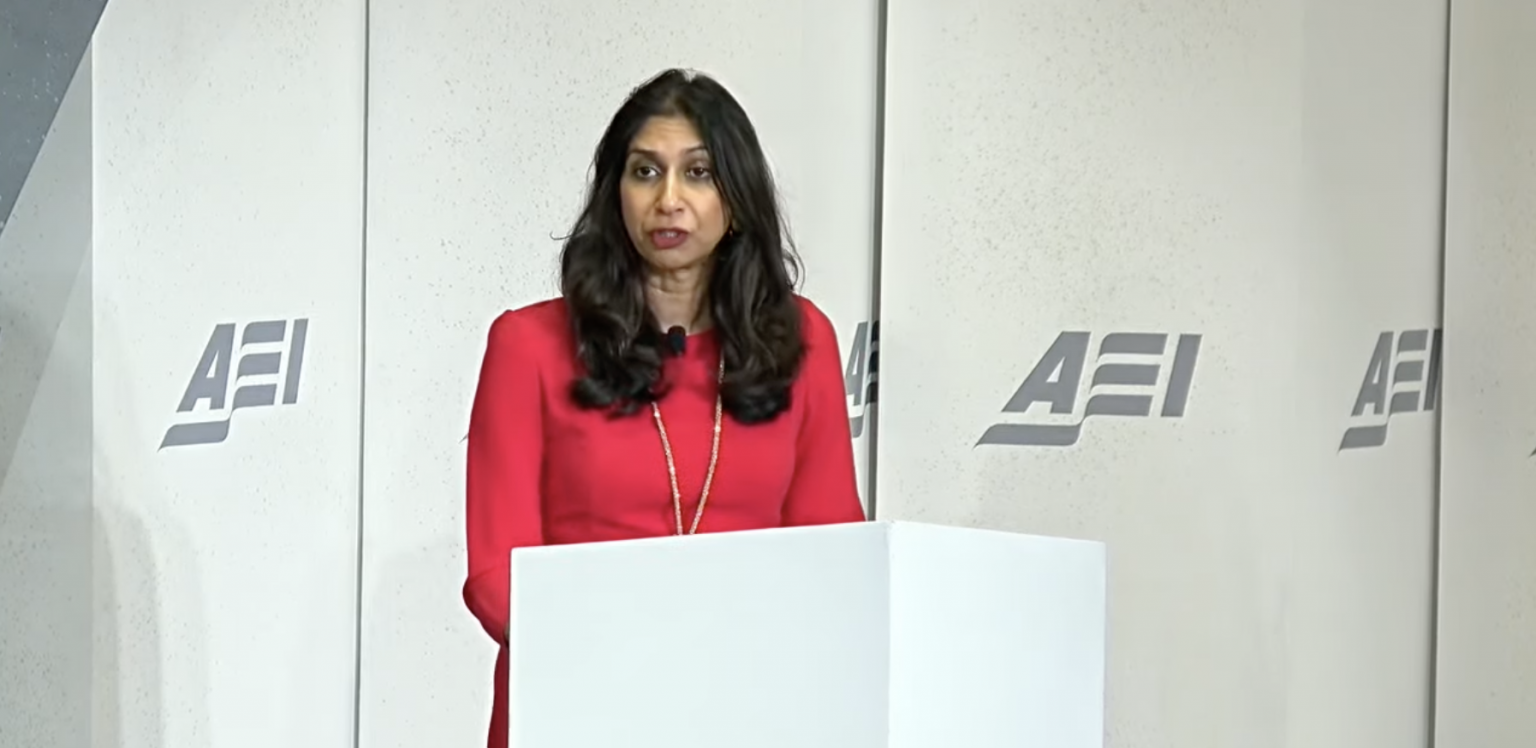
Braverman’s specific remarks portraying Turkey as “manifestly” safe drew harsh critique from LGBTQ groups in Britain pointing out that Erdoğan has publicly labeled LGBTQ people “deviants.”
PinkNewsUK reported that 246 human rights groups banded together to demand that the UK government respect the lives of women and LGBTQ people after Braverman’s D.C. speech.
A joint letter produced by LGBTQ charity Stonewall, and signed by organizations like Amnesty, Oxfam, Refugee Council, Rainbow Migration, and End Violence Against Women Coalition, calls on Sunak to reaffirm the UK’s commitment to protecting LGBTQ people and women worldwide.
The letter also rejects Braverman’s suggestion that LGBTQ people and women are misusing their identities to claim asylum in the UK.
On Oct. 6, the UK government released its annual report that revealed there were 145,214 hate crimes recorded by police in England and Wales in 2022-2023, a slight 5 percent decrease compared to the previous year.
In a briefing outlining new hate crime figures for the UK, the Home Office said that transgender issues had been “heavily discussed by politicians, the media and on social media” over the last year, which it said “may have led to an increase in these offenses.”
It added that the government’s focus on transgender issues could also have led to “more awareness in the police in the identification and recording of these crimes.”
Stonewall, the UK’s largest LGBTQ charity organization, noted that this recent report’s data comes in a continuing surge in reports of anti-LGBTQ and anti-transgender hate in recent months across Britain, Wales and Northern Ireland.
The blame LGBTQ advocates in the UK say also lies with the Prime Minister’s transphobic public comments. At the Conservative Party conference on Oct. 4, the prime minister claimed that Brits are being “bullied” into believing that “people can be any sex they want to be.” He then said it was “common sense” that a “man is a man and a woman is a woman.”
Robbie de Santos, director of external affairs at Stonewall, told PinkNewsUK he is concerned that political figures are dehumanizing LGBTQ people, which “legitimizes violence” instead of acting “seriously or quickly enough” to tackle the rising tide of hate.
Philippines
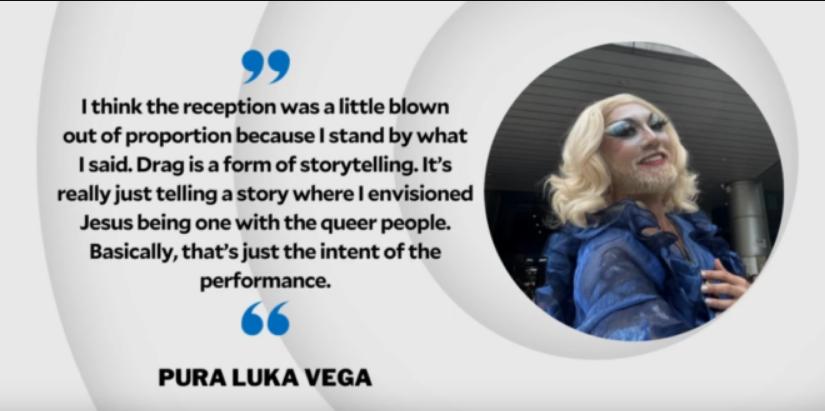
A 33-year-old drag queen, who is currently incarcerated in a Manila jail, is facing up to 12 years in prison under the Catholic-majority country’s obscenity laws for his performance dressed as Jesus Christ, performing a rock version of the Lord’s Prayer in Tagalog.
Amadeus Fernando Pagente, who performs under the stage/drag name Pura Luka Vega, was arrested by Manila police earlier this month after the Philippines for Jesus Movement, comprising Protestant church leaders, registered the first criminal complaint with the Manila Prosecutor’s Office in July of this year followed in August by a second complaint was then filed in August by Nazarene Brotherhood, a Catholic group the BBC reported.
A video of the performance by Pagente had sparked criminal complaints by the Christian groups.

In interviews with AFP, supporters of Pagente are calling for his release with the #FreePuraLukaVega hash tag, arguing that “drag is not a crime.” Some compared the performer’s predicament with alleged murderers and sex crime offenders, whom they claimed remain free and have not been justly dealt with.
Pagente himself told AFP: “The arrest shows the degree of homophobia” in the Philippines. “I understand that people call my performance blasphemous, offensive or regrettable. However, they shouldn’t tell me how I practice my faith or how I do my drag.”
Ryan Thoreson, a specialist at the Human Rights Watch’s LGBT rights program, also called for the charges against Pagente to be dropped.
“Freedom of expression includes artistic expression that offends, satirizes, or challenges religious beliefs,” Thoreson told the BBC.
Additional reporting from GCN, The Journal, BBC, PinkNewsUK, and Têtu.com
Books
New book profiles LGBTQ Ukrainians, documents war experiences
Tuesday marks four years since Russia attacked Ukraine

Journalist J. Lester Feder’s new book profiles LGBTQ Ukrainians and their experiences during Russia’s war against their country.
Feder for “The Queer Face of War: Portraits and Stories from Ukraine” interviewed and photographed LGBTQ Ukrainians in Kyiv, the country’s capital, and in other cities. They include Olena Hloba, the co-founder of Tergo, a support group for parents and friends of LGBTQ Ukrainians, who fled her home in the Kyiv suburb of Bucha shortly after Russia launched its war on Feb. 24, 2022.
Russian soldiers killed civilians as they withdrew from Bucha. Videos and photographs that emerged from the Kyiv suburb showed dead bodies with their hands tied behind their back and other signs of torture.

Olena Shevchenko, chair of Insight, a Ukrainian LGBTQ rights group, wrote the book’s forward.

The book also profiles Viktor Pylypenko, a gay man who the Ukrainian military assigned to the 72nd Mechanized Black Cossack Brigade after the war began. Feder writes Pylypenko’s unit “was deployed to some of the fiercest and most important battles of the war.”
“The brigade was pivotal to beating Russian forces back from Kyiv in their initial attempt to take the capital, helping them liberate territory near Kharkiv and defending the front lines in Donbas,” wrote Feder.
Pylypenko spent two years fighting “on Ukraine’s most dangerous battlefields, serving primarily as a medic.”
“At times he felt he was living in a horror movie, watching tank shells tear his fellow soldiers apart before his eyes,” wrote Feder. “He held many men as they took their final breaths. Of the roughly one hundred who entered the unit with him, only six remained when he was discharged in 2024. He didn’t leave by choice: he went home to take care of his father, who had suffered a stroke.”
Feder notes one of Pylypenko’s former commanders attacked him online when he came out. Pylypenko said another commander defended him.
Feder also profiled Diana and Oleksii Polukhin, two residents of Kherson, a port city in southern Ukraine that is near the mouth of the Dnieper River.
Ukrainian forces regained control of Kherson in November 2022, nine months after Russia occupied it.
Diana, a cigarette vender, and Polukhin told Feder that Russian forces demanded they disclose the names of other LGBTQ Ukrainians in Kherson. Russian forces also tortured Diana and Polukhin while in their custody.
Polukhim is the first LGBTQ victim of Russian persecution to report their case to Ukrainian prosecutors.

Feder, who is of Ukrainian descent, first visited Ukraine in 2013 when he wrote for BuzzFeed.
He was Outright International’s Senior Fellow for Emergency Research from 2021-2023. Feder last traveled to Ukraine in December 2024.
Feder spoke about his book at Politics and Prose at the Wharf in Southwest D.C. on Feb. 6. The Washington Blade spoke with Feder on Feb. 20.
Feder told the Blade he began to work on the book when he was at Outright International and working with humanitarian groups on how to better serve LGBTQ Ukrainians. Feder said military service requirements, a lack of access to hormone therapy and documents that accurately reflect a person’s gender identity and LGBTQ-friendly shelters are among the myriad challenges that LGBTQ Ukrainians have faced since the war began.
“All of these were components of a queer experience of war that was not well documented, and we had never seen in one place, especially with photos,” he told the Blade. “I felt really called to do that, not only because of what was happening in Ukraine, but also as a way to bring to the surface issues that we’d had seen in Iraq and Syria and Afghanistan.”

Feder also spoke with the Blade about the war’s geopolitical implications.
Russian President Vladimir Putin in 2013 signed a law that bans the “promotion of homosexuality” to minors.
The 2014 Winter Olympics took place in Sochi, a Russian resort city on the Black Sea. Russia annexed Crimea from Ukraine a few weeks after the games ended.
Russia’s anti-LGBTQ crackdown has continued over the last decade.
The Russian Supreme Court in 2023 ruled the “international LGBT movement” is an extremist organization and banned it. The Russian Justice Ministry last month designated ILGA World, a global LGBTQ and intersex rights group, as an “undesirable” organization.
Ukraine, meanwhile, has sought to align itself with Europe.
Ukrainian President Volodymyr Zelenskyy after a 2021 meeting with then-President Joe Biden at the White House said his country would continue to fight discrimination based on sexual orientation and gender identity. (Zelenskyy’s relationship with the U.S. has grown more tense since the Trump-Vance administration took office.) Zelenskyy in 2022 publicly backed civil partnerships for same-sex couples.
Then-Ukrainian Ambassador to the U.S. Oksana Markarova in 2023 applauded Kyiv Pride and other LGBTQ and intersex rights groups in her country when she spoke at a photo exhibit at Ukraine House in D.C. that highlighted LGBTQ and intersex soldiers. Then-Kyiv Pride Executive Director Lenny Emson, who Feder profiles in his book, was among those who attended the event.
“Thank you for everything you do in Kyiv, and thank you for everything that you do in order to fight the discrimination that still is somewhere in Ukraine,” said Markarova. “Not everything is perfect yet, but you know, I think we are moving in the right direction. And we together will not only fight the external enemy, but also will see equality.”
Feder in response to the Blade’s question about why he decided to write his book said he “didn’t feel” the “significance of Russia’s war against Ukraine” for LGBTQ people around the world “was fully understood.”
“This was an opportunity to tell that big story,” he said.
“The crackdown on LGBT rights inside Russia was essentially a laboratory for a strategy of attacking democratic values by attacking queer rights and it was one as Ukraine was getting closet to Europe back in 2013, 2014,” he added. “It was a strategy they were using as part of their foreign policy, and it was one they were using not only in Ukraine over the past decade, but around the world.”
Feder said Republicans are using “that same strategy to attack queer people, to attack democracy itself.”
“I felt like it was important that Americans understand that history,” he said.
Netherlands
Rob Jetten becomes first gay Dutch prime minister
38-year-old head of government sworn in on Monday

Rob Jetten on Monday became the Netherland’s first openly gay prime minister.
Jetten’s centrist D66 party won the country’s elections last October, narrowly defeating Geert Wilders’ far-right Party for Freedom.
King Willem-Alexander on Monday swore in Jetten, who is also the country’s youngest-ever prime minister. The Associated Press notes Jetten’s coalition government includes the center-right Christian Democrats and the center-right People’s Party for Freedom and Democracy.
“Proud to be able to do this together,” said Jetten in an X post before Willem-Alexander swore him in.
COC Nederland, a Dutch LGBTQ advocacy group, in a statement said Jetten “becoming prime minister shows that your sexual orientation doesn’t have to matter.”
“You can become a construction worker, a doctor, a lawyer, and even prime minister,” said COC Nederland.
The advocacy group noted Jetten has said his government will implement its “Rainbow Agreement” that include calls for strengthening nondiscrimination laws “to better protect transgender and intersex people,” appointing more “discrimination investigators … to address violence against LGBTQ+ people and other minorities,” and introducing measures “to promote acceptance in schools.”
“COC will hold the Cabinet to that promise,” said COC Nederland.
Jetten’s fiancé is Nicolás Keenen, an Argentine field hockey player who competed in the 2024 Summer Olympics in Paris.
Jetten is one of two openly gay heads of government: Andorran Prime Minister Xavier Espot Zamora came out in 2023. Gay Latvian President Edgars Rinkēvičs, who is the country’s head of state, took office in 2023.
Leo Varadkar, who was Ireland’s prime minister from 2017-2020 and from 2022-2024, and Xavier Bettel, who was Luxembourg’s prime minister from 2013-2023, are gay. Ana Brnabić, who was Serbia’s prime minister from 2017-2024, is a lesbian.
Former Icelandic Prime Minister Jóhanna Sigurðardóttir in 2009 became the world’s first openly lesbian head of government. Former Belgian Prime Minister Elio Di Rupo, former San Marino Captain Regent Paolo Rondelli, and former French Prime Minister Gabriel Attal are also openly gay.
Colombian presidential candidate Claudia López, who is the former mayor of Bogotá, the Colombian capital, would become her country’s first female and first lesbian president if she wins the country’s presidential election that is taking place later this year.
Ecuador
Justicia reconoce delito de odio en caso de bullying en Instituto Nacional Mejía de Ecuador
Johana B se suicidó el 11 de abril de 2023

A casi tres años del suicidio de Johana B., quien estudió en el Instituto Nacional Mejía, colegio emblemático de Quito, el Tribunal de la Corte Nacional de Justicia ratificó la condena para el alumno responsable del acoso escolar que la llevó a quitarse la vida.
Según información de la Fiscalía, el fallo de última instancia deja en firme la condena de cuatro años de internamiento en un centro para adolescentes infractores, en una audiencia de casación pedida por la defensa del agresor, tres meses antes de que prescriba el caso.
Con la sentencia, este caso es uno de los primeros en el país en reconocer actos de odio por violencia de género, delito tipificado en el artículo 177 del Código Orgánico Penal Integral (COIP).
El suicidio de Johana B. ocurrió el 11 abril de 2023 y fue consecuencia del acoso escolar por estereotipos de género que enfrentó la estudiante por parte de su agresor, quien constantemente la insultaba y agredía por su forma de vestir, llevar el cabello corto o practicar actividades que hace años se consideraban exclusivamente para hombres, como ser mando de la Banda de Paz en el Instituto Nacional Mejía.
Desde la muerte de Johana, su familia buscaba justicia. Su padre, José, en una entrevista concedida a edición cientonce para la investigación periodística Los suicidios que quedan en el clóset a causa de la omisión estatal afirmó que su hija era acosada por su compañero y otres estudiantes con apodos como “marimacha”, lo que también fue corroborado en los testimonios recogidos por la Unidad de Justicia Juvenil No. 4 de la Fiscalía.
Los resultados de la autopsia psicológica y del examen antropológico realizados tras la muerte de Johana confirmaron las versiones de sus compañeras y docentes: que su agresor la acosó de manera sistemática durante dos años. Los empujones, jalones de cabello o burlas, incluso por su situación económica, eran constantes en el aula de clase.
La violencia que recibió Johana escaló cuando su compañero le dio un codazo en la espalda ocasionándole una lesión que le imposibilitó caminar y asistir a clases.
Días después del hecho, la adolescente se quitó la vida en su casa, tras escuchar que la madre del agresor se negó a pagar la mitad del valor de una tomografía para determinar la lesión en su espalda, tal como lo había acordado previamente con sus padres y frente al personal del DECE (Departamento de Consejería Estudiantil del colegio), según versiones de su familia y la Fiscalía.
#AFONDO | Johana se suicidó el 11 de abril de 2023, tras ser víctima de acoso escolar por no cumplir con estereotipos femeninos 😢.
Dos semanas antes, uno de sus compañeros le dio un codazo en la espalda, ocasionándole una lesión que le imposibilitó caminar 🧵 pic.twitter.com/bXKUs9YYOm
— EdicionCientonce (@EdCientonce) September 3, 2025
“Era una chica linda, fuerte, alegre. Siempre nos llevamos muy bien, hemos compartido todo. Nos dejó muchos recuerdos y todos nos sentimos tristes; siempre estamos pensando en ella. Es un vacío tan grande aquí, en este lugar”, expresó José a Edición Cientonce el año pasado.
Para la fiscal del caso y de la Unidad de Justicia Juvenil de la Fiscalía, Martha Reino, el suicidio de la adolescente fue un agravante que se contempló durante la audiencia de juzgamiento de marzo de 2024, según explicó a este medio el año pasado. Desde entonces, la familia del agresor presentó un recurso de casación en la Corte Nacional de Justicia, que provocó la dilatación del proceso.
En el fallo de última instancia, el Tribunal también dispuso que el agresor pague $3.000 a la familia de Johana B. como reparación integral. Además, el adolescente deberá recibir medidas socioeducativas, de acuerdo al artículo 385 del Código Orgánico de la Niñez y Adolescencia, señala la Fiscalía.
El caso de Johana también destapó las omisiones y negligencias del personal del DECE y docentes del Instituto Nacional Mejía. En la etapa de instrucción fiscal se comprobó que no se aplicaron los protocolos respectivos para proteger a la víctima.
De hecho, la Fiscalía conoció el caso a raíz de la denuncia que presentó su padre, José, y no por el DECE, aseguró la fiscal el año pasado a Edición Cientonce.
Pese a estas omisiones presentadas en el proceso, el fallo de última instancia sólo ratificó la condena para el estudiante.




















